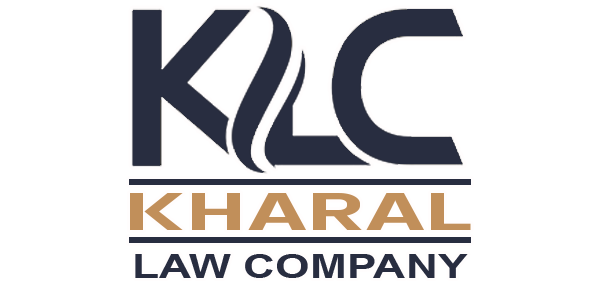Law firms must stay informed about changing tax laws and ensure they allocate sufficient resources to prepare the necessary documentation in advance. This includes gathering receipts, verifying deductions, and ensuring compliance with all tax obligations. Engaging a bookkeeping professional who understands the intricacies of legal billing and tax requirements can help mitigate these risks, ensuring that firms are well-prepared to maximize all eligible deductions and credits. A proactive approach to tax planning can also uncover potential tax-saving strategies that firms can benefit from. Furthermore, consistent record-keeping of hours worked, and expenses incurred against the retainer is crucial. This practice aids in accurate billing and allows for effective budgeting within the client’s expectations.
Integrating Bookkeeping Software With Case Management Software
Furthermore, neglecting to implement proper controls over financial processes can make firms vulnerable to fraud and mismanagement. Without adequate checks and balances, unauthorized access or changes to financial data can occur, compounding the likelihood of ethical violations. For example, if access to financial documents is not restricted, sensitive information might be manipulated or misused, creating significant ethical dilemmas for the firm. Different legal accounting software options have different features, but that doesn’t mean that you necessarily need every single feature available.
Cost-Effectiveness Of Outsourcing Bookkeeping For Law Firms
Providers should offer solutions that are not only secure and scalable but also user-friendly, ensuring that all staff members can easily navigate and utilize the software. This technological edge can significantly enhance reporting speed and accuracy, which are essential for informed decision-making. Furthermore, look for providers that stay updated with the latest technology trends, as this can help the firm leverage advanced analytics and reporting features that drive better business insights. Bookkeeping not only ensures compliance with financial regulations but also plays a pivotal role in enhancing profitability for law firms.
Top Account Software for Lawyers
You can add as many accounts to your chart of accounts as you need to prepare accurate and informative financial statements, but don’t let your chart of accounts get too unwieldy. Lawyers spend years honing their legal skills, but they often have little knowledge of accounting practices. Fortunately, with a combination of technology, best practices, and the right help, it’s possible to stay on top of your bookkeeping with little effort. Access to comprehensive reports empowers firms to analyze productivity, identify trends, and make data-driven decisions. Protecting sensitive client data is paramount, so prioritize software with robust security features. Consider asking the prospective accountant about their familiarity with employment tax regulations and whether they have worked with independent contractors common in the legal industry.
- Additionally, staying updated with educational resources on the Clio Accounting Hub can provide insights into maximizing tax deductions specific to legal practices.
- This commitment to financial health not only benefits the firm but also enhances the level of service provided to clients, reinforcing the firm’s reputation and reliability in the legal community.
- While Nav always strives to present the most accurate information, we show a summary to help you choose a product, not the full legal terms – and before applying you should understand the full terms of products as stated by the issuer itself.
- If you’re not sure what tax deductions you should be watching for, our post covering the top tax deductions for lawyers and law firms is a good place to start.
- By partnering with bookkeeping services that focus specifically on the legal sector, firms gain invaluable insights and knowledge that may not be available internally.
When employees are preoccupied with addressing financial discrepancies, their ability to focus on client matters and deliver exceptional legal services diminishes. In addition https://x.com/BooksTimeInc to being necessary to comply with ethics rules around legal accounting, accurate financial records drive law firm growth, as you need accurate data to make smart business decisions for your law firm. Trust accounting is the practice of keeping client funds given in trust (including unearned fees paid as a retainer, settlement funds, court fees, or advanced costs) in a separate account from law firm operating funds.
Ultimately, a law firm that excels in trust account management demonstrates a dedication to ethical practices, which can significantly enhance client satisfaction and loyalty. Failure to maintain accurate trust account records can lead to serious consequences, including disciplinary action from bar associations or even legal ramifications that could jeopardize the firm’s reputation. Therefore, law firms must implement robust accounting systems, such as maintaining separate trust and operating accounts, to ensure clear segregation of client funds from the firm’s operational finances. This separation is vital to protecting client assets and ensuring that funds are only used for their intended purposes.
How Premium Money in the Bank Billing Service Works
Additionally, while sole proprietorships can enjoy straightforward accounting, they often miss https://www.bookstime.com/ out on certain tax benefits available to other structures. Another important consideration is the timing of income recognition, which can have significant tax implications. Law firms may face unique circumstances that allow for flexibility in how and when income is reported for tax purposes, such as the choice between cash versus accrual accounting methods.
An experienced accountant can provide valuable insights into financial strategies, helping firms leverage every opportunity to reduce tax exposure while remaining compliant with applicable laws legal bookkeeping services and regulations. They can also assist in developing financial forecasting and budgeting strategies tailored to the firm’s specific goals and needs. Another notable challenge is the maintenance of consistent financial reporting standards across various departments and practice areas, each of which may have its own billing practices and fee arrangements. This complexity necessitates the adoption of robust financial management systems capable of accommodating differing compliance requirements and billing structures across multiple jurisdictions.
- One major mistake is the failure to maintain timely and consistent bookkeeping practices throughout the year.
- By investing effort into meticulous record-keeping, firms can navigate the complexities of financial reviews with confidence and accuracy.
- More than a regulatory obligation, a year-end accounting review is a powerful tool that drives business, ensures compliance, fosters stakeholder confidence and trust, and informs strategic planning.
- Thus, investing in professional tax services not only streamlines financial operations but can yield significant dividends in terms of cost savings and efficiency.
- Automating payment reminders through InvoiceSherpa not only saves time but also helps in maintaining healthy client relationships by ensuring that the firm’s financial transactions are well-maintained as per regulatory requirements.
Ensuring Compliance with Legal and Ethical Standards
This can be effectively achieved through periodic statements that detail any fees that have been deducted from the retainer and the remaining balance available for services. Clear and timely communication not only promotes transparency but also encourages prompt action from clients when replenishment is necessary. Law firms could consider scheduling these updates at regular intervals—such as monthly or quarterly—to keep clients informed and engaged. These advanced tools offer a suite of integrated features that allow lawyers to effortlessly record billable hours while simultaneously managing case-related expenses in real-time. By automating the time-tracking process, attorneys can ensure that every minute spent on a case is meticulously accounted for, reducing the risk of lost billable hours and ultimately improving the firm’s revenue potential.


